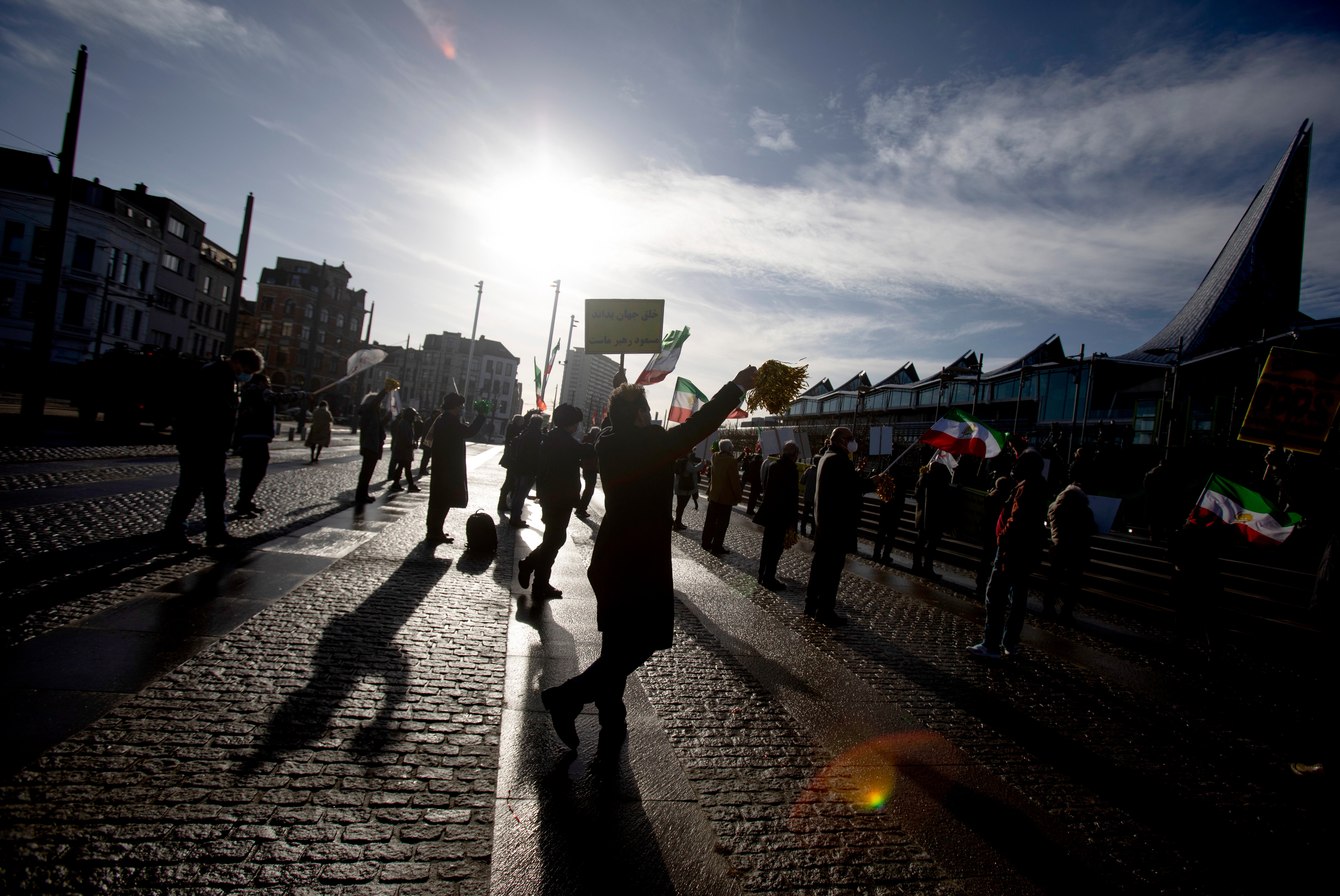Iranian diplomat convicted of planning attack on opposition
An Iranian official has been convicted of masterminding a thwarted bomb attack against an exiled Iranian opposition group in France in 2018 and sentenced to 20 years in prison by a Belgian court

Your support helps us to tell the story
From reproductive rights to climate change to Big Tech, The Independent is on the ground when the story is developing. Whether it's investigating the financials of Elon Musk's pro-Trump PAC or producing our latest documentary, 'The A Word', which shines a light on the American women fighting for reproductive rights, we know how important it is to parse out the facts from the messaging.
At such a critical moment in US history, we need reporters on the ground. Your donation allows us to keep sending journalists to speak to both sides of the story.
The Independent is trusted by Americans across the entire political spectrum. And unlike many other quality news outlets, we choose not to lock Americans out of our reporting and analysis with paywalls. We believe quality journalism should be available to everyone, paid for by those who can afford it.
Your support makes all the difference.An Iranian official identified as an undercover agent was convicted Thursday of masterminding a thwarted bomb attack against an exiled Iranian opposition group in France in 2018 and sentenced to 20 years in prison by a Belgian court that rejected his claim of diplomatic immunity.
Assadollah Assadi, a Vienna-based diplomat detained in Belgium, refused to testify during his trial last year, invoking his diplomatic status. He did not attend Thursday's hearing at the Antwerp courthouse.
Prosecutors had requested the maximum prison sentence of 20 years on charges of attempted terrorist murder and participation in the activities of a terrorist group. Assadi contested all the charges against him. His lawyer, Dimitri De Beco, said it's likely Assadi will decide to appeal the ruling.
Three other defendants were also found guilty and received lengthy jail sentences after the court ruled that they belonged to the same network.
During the trial, lawyers for the plaintiffs and representatives of the Mujahedeen-e-Khalq opposition group, or MEK, claimed without offering evidence that the diplomat set up the attack on direct orders from Iran’s highest authorities. Tehran has denied having a hand in the plot.
In its ruling, the court made clear Iran was not on trial, but insisted the quartet of defendants were members of a cell operating for Iran’s intelligence services gathering information about the opposition group to identify targets and set up an attack.
Assadi’s conviction comes at a critical time and has the potential to embarrass his country as U.S. President Joe Biden’s administration weighs whether to rejoin the 2015 nuclear deal between Tehran and world powers. Iran also said last month it expects Washington to lift economic sanctions that former President Donald Trump imposed on the country after pulling America out of the atomic deal in 2018.
On June 30, 2018, Belgian police officers tipped off by intelligence services about a possible attack against the annual meeting of the MEK, stopped a couple traveling in a Mercedes car. In their luggage, they found 550 grams of the unstable TATP explosive and a detonator.
Belgium’s bomb disposal unit said the device was of professional quality. It could have caused a sizable explosion and panic in the crowd, estimated at 25,000 people, that had gathered that day in the French town of Villepinte, north of Paris.
Among dozens of prominent guests at the rally that day were Trump’s lawyer, Rudy Giuliani; Newt Gingrich, former conservative speaker of the U.S. House of Representatives; and former Colombian presidential candidate Ingrid Betancourt.
Assadi was arrested a day later in Germany and transferred to Belgium. The court said since Assadi was on vacation at the time of his arrest — and not in Austria, where he was accredited — he was not entitled to immunity.
A note from Belgium’s intelligence and security agency seen by The Associated Press identified him as an officer of Iran’s intelligence and security ministry who operated under cover at Iran’s embassy in Vienna. Belgium’s state security officers said he worked for the ministry’s so-called Department 312, the directorate for internal security, which is on the European Union’s list of organizations regarded as terrorist.
Prosecutors said he was the “operational commander” of the attack and accused him of recruiting the couple — Amir Saadouni and Nasimeh Naami — years before the attack, to obtain information about the opposition. Both were of Iranian heritage.
Saadouni was sentenced to 15 years in jail while Naami was handed a 18-year sentence.
According to the investigation, Assadi carried the explosives to Austria on a commercial flight from Iran and later handed the bomb over to the pair during a meeting at a Pizza Hut restaurant in Luxembourg. The ruling confirmed that the explosives were made and tested in Iran.
The fourth defendant, Mehrdad Arefani, was sentenced to 17 years in prison.
The MEK, once an armed organization with a base in Iraq, is the most structured among exiled Iranian opposition groups, and is detested by Iranian authorities. It was removed from EU and U.S. terrorism lists several years ago after denouncing violence and getting western politicians to lobby on its behalf. The MEK supports a hard line on Iran and backs U.S. sanctions on the country.
The organization’s leader, Maryam Rajavi, welcomed the ruling and reasserted her claims that Assadi's plot had been approved by Iranian President Hassan Rouhani and Supreme Leader Ayatollah Ali Khamenei.
“The time has come for the European Union to take action," she said, urging EU countries to recall their ambassadors from Tehran in light of the ruling.
___
Angela Charlton in Paris contributed to this report.